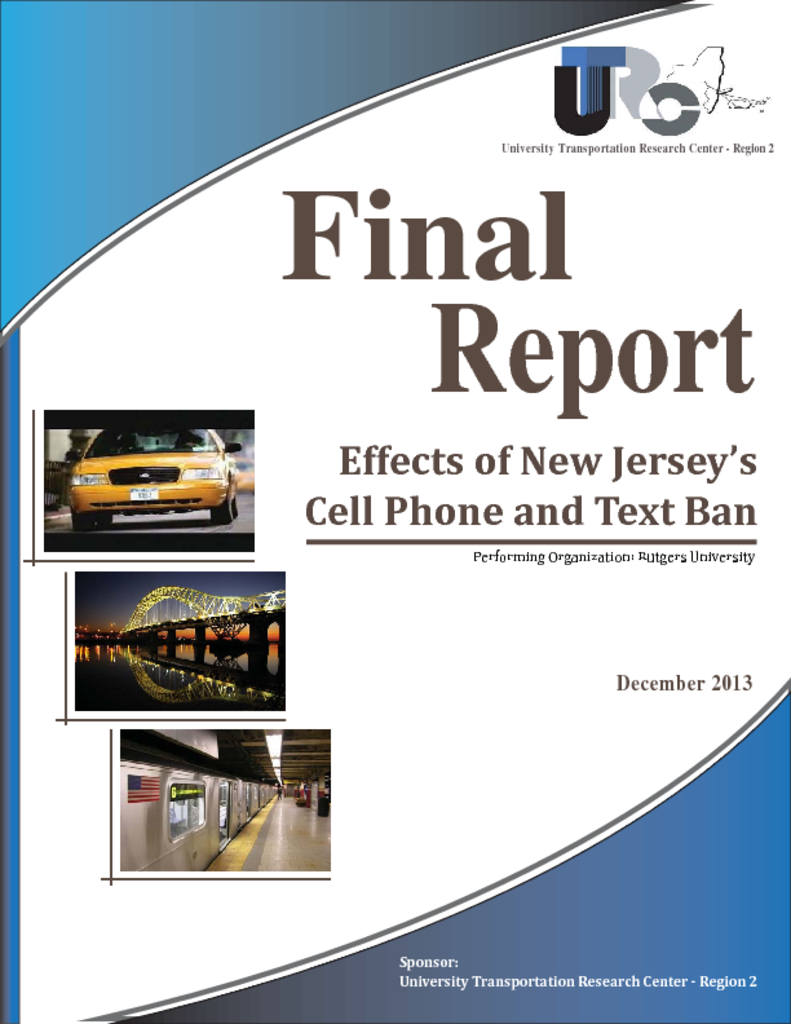Since March 1, 2008 there has been a ban on wireless telephone and electronic communication devices in New Jersey while operating a motor vehicle. But from general observation on any roadway, it appears that there are still drivers who are talking on their phones or texting while driving. From 2006 to 2009, NJ crashes, injuries, and deaths for handheld devices have averaged 1837, 769, and 6, respectively, while hands‐free averaged 1570 crashes, 659 injuries, and 3 deaths. It is generally believed that the number of crashes attributable to phone or text use is under‐reported as drivers will rarely admit to their use and enforcement normally does not witness the crash event. Additionally, law enforcement resources may be limited and issuing citations for phone or text use may be competing with other enforcement priorities. The objectives of this research were to ascertain whether the legislation has had any effect on actual crash and citation data as well as driver attitude toward the phone and text use while driving and the legislative ban. The results showed that actual hand‐held cell phone crashes increased after the ban was implemented but citations issued also increased. Survey results indicated that drivers were knowledgeable about NJ’s law but admitted to violating that law anyway. Drivers supported more enforcement but recognized that the law is difficult to enforce. Recommendations included potential revisions to NJ’s crash form; consistent national legislation; and evaluation of other states’ programs.


